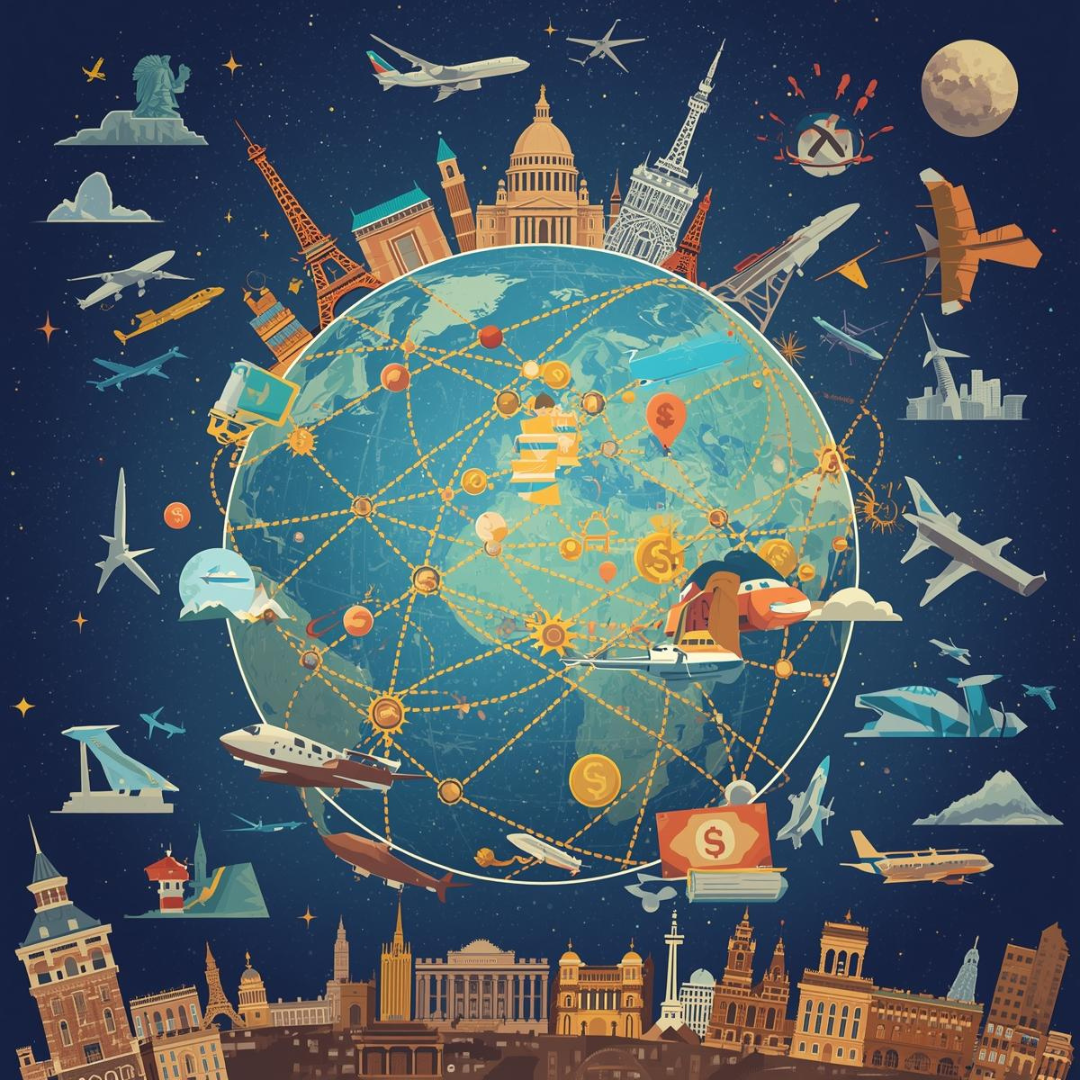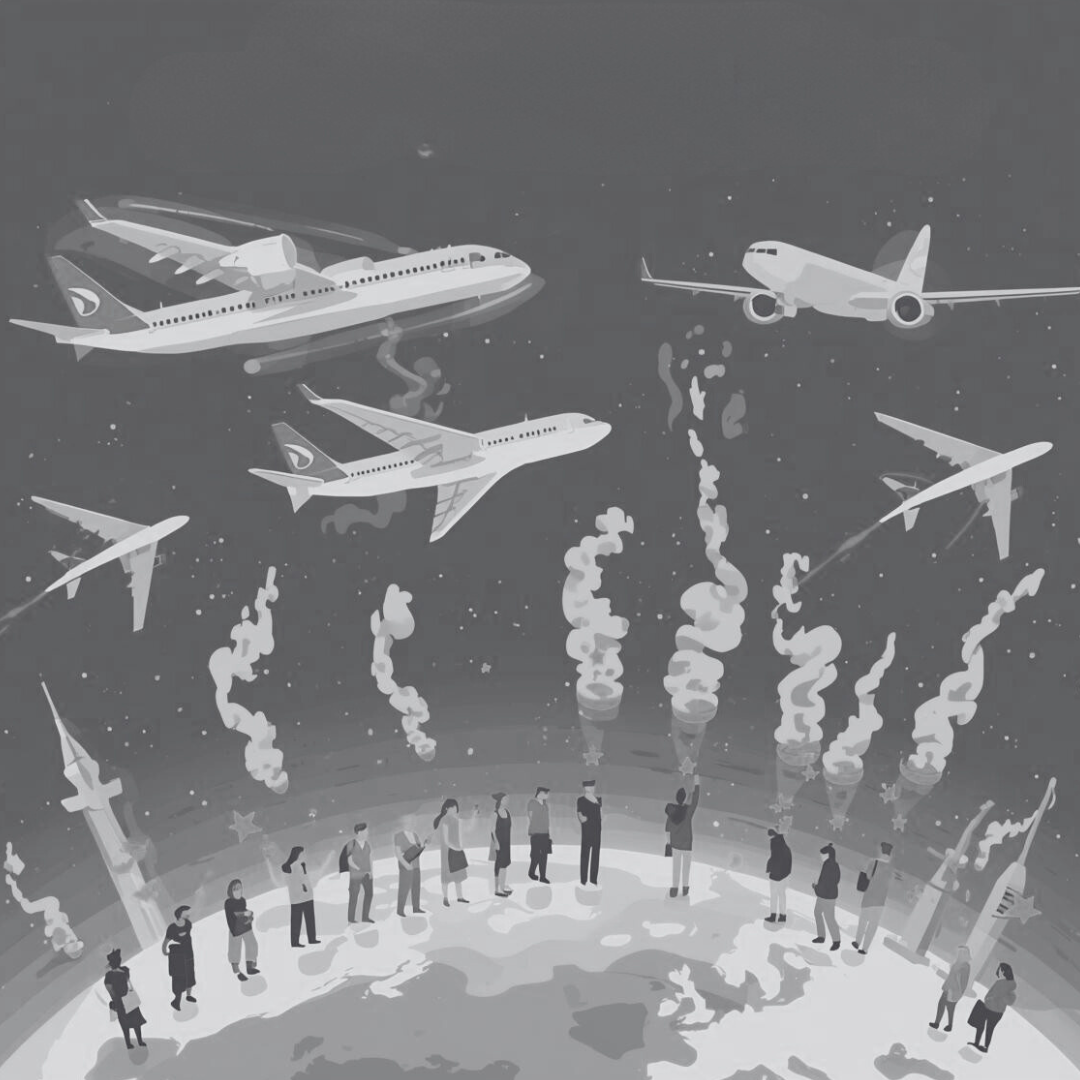
How the Global Economy is Reshaping Tourism
As the world economy shifts, so too does travel.
Tourism remains one of the most dynamic forces connecting people and places — but the way it grows, and who it benefits, is changing fast. As we look toward 2026, destinations and DMOs are entering a crucial moment to rethink how growth, resilience, and regeneration fit into their long-term strategies.
This article explores the key global forces shaping tourism — from shifting markets and workforce realities to evolving traveller values — and what they mean for destinations preparing their next strategic plans.

Tourism at a Turning Point
Tourism continues to outpace much of the global economy, growing at an estimated 3.5% annually between 2025 and 2035, compared to the global average of 2.5%. Even in Europe, where growth is slower, tourism still leads.
This momentum brings both opportunity and pressure: a growing middle class eager to explore, new investment potential, and increasing responsibility to manage growth sustainably.
Why It Matters: Tourism's expansion is inevitable — but how it's guided will define its impact. The question is no longer whether visitors will come, but what kind of growth destinations want to create.
Expanding Markets, Evolving Values
Emerging economies such as China and India now represent nearly a quarter of all outbound travel. By 2030, the Asia-Pacific middle class is expected to reach 3.5 billion people — bringing a wave of travellers who are motivated by meaning, not just mobility.
From wellness retreats to learning journeys, visitors are increasingly drawn to experiences that connect them with local people, landscapes, and cultures. This shift from consumption to connection is reshaping what defines value in travel.
Destinations that embrace identity over imitation will be better positioned to build balanced visitor mixes and reduce dependence on a single source market.
Why It Matters: The future traveller is intentional. Growth will favour places that are authentic, grounded, and human-centred.
Business Travel with Purpose
It's not just leisure travel evolving. MICE tourism — meetings, incentives, conferences, and exhibitions — is forecast to grow 7.8% annually through 2030.
Today's business events blend purpose with participation. From carbon-neutral venues to community partnerships, the new corporate traveller seeks to contribute as much as connect.
Why It Matters: Work and travel are converging. The most successful business destinations will be those that create shared value for attendees, hosts, and local communities alike.
The Cost of Growth
With opportunity comes constraint. Inflation, labour shortages, and rising energy costs are reshaping what travel costs — and who can afford it. Airfares and accommodation continue to climb, leaving smaller operators squeezed and many mid-range travellers priced out.
A two-speed tourism economy is emerging: luxury sectors flourish while affordable, community-driven travel struggles to keep up. The risk is not just economic imbalance but a narrowing of who tourism serves.
Why It Matters: When travel becomes a privilege for the few, destinations lose connection, creativity, and diversity. Regenerative tourism must remain inclusive to be sustainable.
The Workforce Challenge
At the centre of it all lies a people problem. Tourism is only as strong as its workforce.
Hospitality turnover remains among the highest of any sector — reaching up to 75% in some regions. Without fair wages, affordable housing, and viable career paths, destinations risk losing the people who make their experiences possible.
The WTTC estimates that one in eight jobs worldwide will be in tourism within the next decade. That potential means little, however, if the industry fails to invest in its people.
Why It Matters: People are the foundation of place. Investing in workforce well-being isn't optional — it's essential for long-term success.
Smarter Growth for a Changing World
The next decade will test how destinations define progress. Growth for growth's sake is no longer enough.
Resilient destinations are those that diversify markets, invest in sustainable infrastructure, and involve residents in shaping the visitor experience. Success will depend less on volume and more on value — not just economic, but social and environmental too.
Why It Matters: The global economy will keep evolving, but destinations can choose: chase short-term numbers or design tourism that regenerates communities for generations to come.
Looking Ahead
As we approach 2026, these global shifts will continue to redefine how destinations operate and plan for the future. For DMOs and tourism leaders, they present a chance to rethink strategy, strengthen local value chains, and align with a new generation of travellers.
At Place Generation, we help destinations turn insights like these into practical strategies — aligning global trends with local realities to build regenerative, resilient tourism economies. Because thriving destinations don't just respond to change — they lead it.
- ELKE DENS


